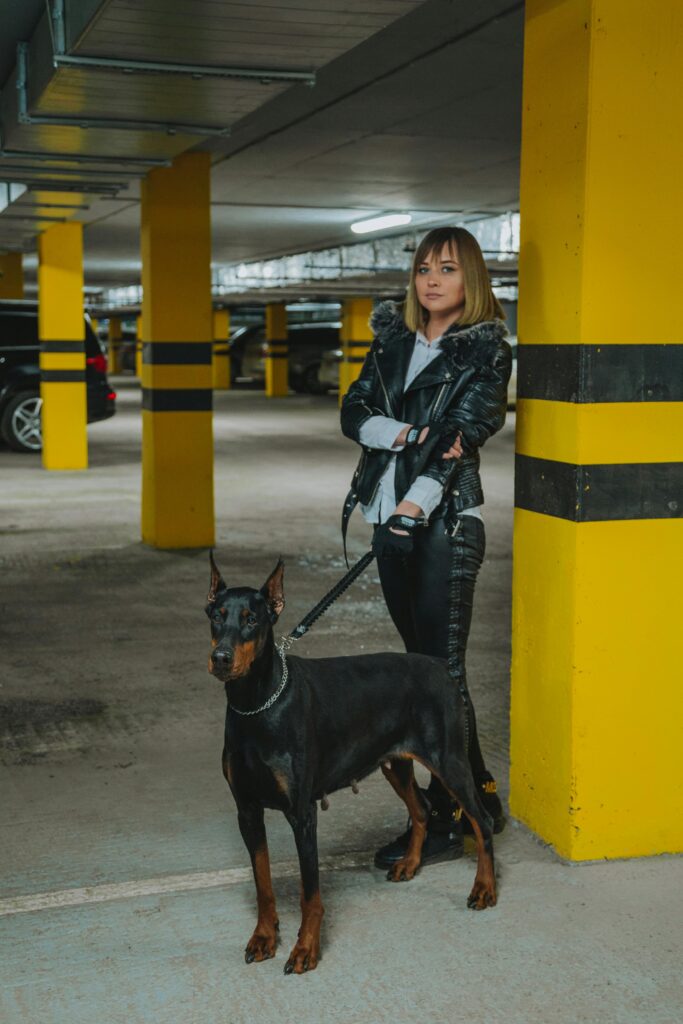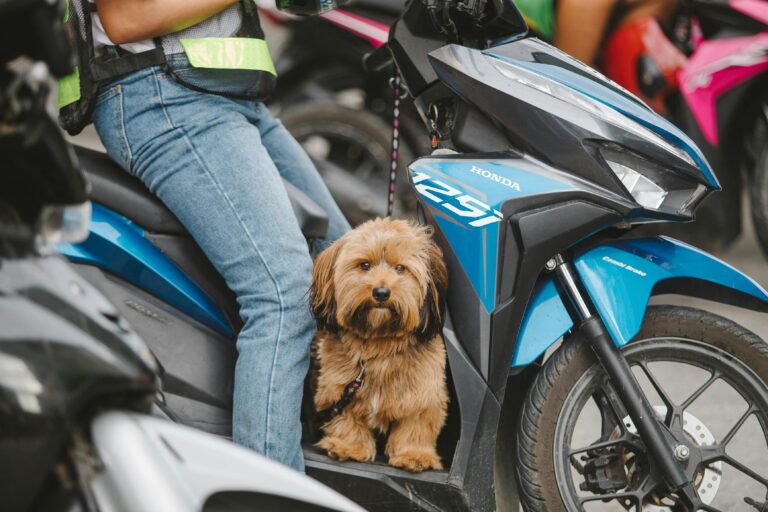When most people hear “socialization,” they picture puppies playing with other dogs. While that’s part of it, true socialization goes far beyond playdates and dog parks. It’s about preparing your dog to handle real-world experiences with confidence and calm behavior.
In Houston, we’re surrounded by dog-friendly patios, busy sidewalks, public parks, and neighborhood events. But navigating these places with an under-socialized dog can be stressful, even dangerous. The key to success? Purposeful, structured training in the environments you actually frequent.
At Off Leash K9 Training Houston, we specialize in preparing dogs for real-life challenges. Let’s explore what real-world socialization really means, how to do it safely, and why it’s essential for every dog’s development.

What Real-World Socialization Looks Like
Real-world socialization means exposing your dog to new environments, people, noises, and situations while maintaining control and reinforcing positive behavior.
Examples include:
- Walking calmly past strollers, skateboards, and joggers
- Settling under your table at a busy café
- Ignoring dropped food at a park picnic
- Responding to commands despite crowds and distractions
- Riding calmly in elevators or waiting rooms
This kind of exposure builds confidence, reduces reactivity, and creates a dog who can truly go anywhere with you.
Start With the Right Foundation
Before you bring your dog into high-distraction environments, ensure they have a strong foundation in basic obedience. Commands like heel, sit, down, and place must be reliable even with distractions. Otherwise, you’re setting your dog up to fail.
That’s exactly what our Basic & Advanced Obedience Program is designed for. We focus on off-leash control, environmental desensitization, and real-world reliability, all customized to your lifestyle.
How to Introduce Your Dog to New Environments Safely
Jumping straight into a crowded patio or park can overwhelm an unprepared dog. Instead, use gradual exposure to set your pup up for success.
Step-by-step approach:
- Scout the location first: Visit without your dog to identify calm spots and avoid problem areas.
- Go during off-hours: Visit early or midweek when it’s quieter and easier to control the environment.
- Keep sessions short: Start with 5–10 minute visits and build from there.
- Reward calm behavior: Use treats or praise when your dog focuses on you and remains relaxed.
- Avoid forced interactions: Never force your dog to be petted or sniff other dogs. Let them choose to engage or disengage.
Want to learn how this type of exposure is used in confidence-building? Check out our blog on dog anxiety solutions and gradual confidence training.
Tools for Urban and Suburban Socialization
Everyday life in Houston offers plenty of built-in training opportunities if you know where to look. Here are some of our favorite places to practice:
- Cafés and patios: Practice long-duration place commands under your table.
- Farmers markets: Great for impulse control with food, children, and other dogs around.
- Walking trails or greenbelts: Focus on calm leash behavior around bikes and strollers.
- Home Depot or pet stores: Controlled exposure to carts, customers, and slippery floors.
- Dog-friendly events or parades: Ideal for advanced socialization with sound desensitization.
Before heading out, always check if the location allows dogs and what their rules are. Many Houston businesses are dog-friendly, but always confirm first.
Common Mistakes to Avoid
Socializing your dog in real-world settings can backfire if not done thoughtfully. Avoid these common pitfalls:
- Flooding your dog: Throwing them into overwhelming environments too soon can create fear.
- Using tight leashes: This can increase reactivity and restrict natural movement.
- Skipping breaks: Dogs need time to process. A short walk-away reset can prevent meltdowns.
- Over-rewarding with food: Use praise, leash pressure, and space rewards too, so your dog doesn’t rely solely on treats.
- Letting strangers overwhelm your dog: Teach your dog that it’s okay to say no to petting or interaction.
For a detailed comparison between group training and real-world prep, the AKC’s guide to puppy training classes outlines how structured exposure is far more valuable than chaotic group play.
Real-World Socialization Is Ongoing
Socialization isn’t a one-time checklist. It’s an ongoing process throughout your dog’s life. Even well-trained dogs benefit from regular exposure to new settings to keep their skills sharp.
Try rotating experiences weekly:
- Monday: Walk at the park trail
- Wednesday: Visit a dog-friendly store
- Friday: Quick café sit with a coffee
- Weekend: Family walk with stroller or bikes
These consistent, low-pressure sessions make a huge difference in your dog’s confidence and behavior.
Train for the Life You Want
If your goal is to take your dog everywhere, they need the training to match. A reliable recall in the park, calm behavior in a crowd, and confidence around new stimuli don’t happen by accident, they’re the result of consistent, purposeful practice.
Let us help you train for the life you want to live.
Our real-world socialization training is tailored to your routine, locations, and goals. Contact us today and let’s build a dog you can confidently take anywhere.

